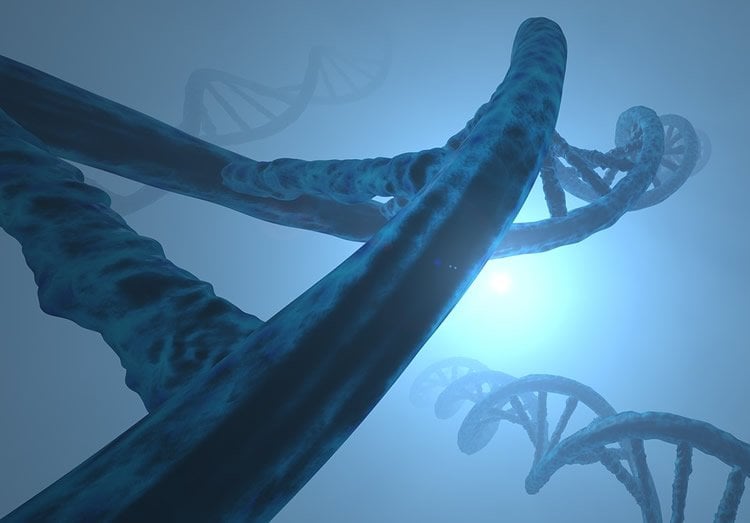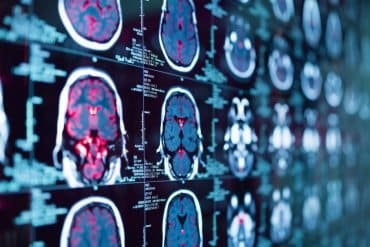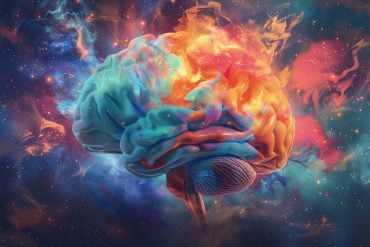Summary: Researchers discover genes associated with major depressive disorder are altered in opposite directions in males compared to females.
Source: Elsevier.
Men and women with major depressive disorder (MDD) have opposite changes in the expression of the same genes, according to a new postmortem brain study by researchers at the University of Pittsburgh and Centre for Addiction and Mental Health (CAMH), Toronto, Canada. The findings, published in Biological Psychiatry, indicate distinct pathology, and suggest that men and women may need different types of treatment for depression.
“This important paper highlights the divergent molecular mechanisms contributing to depression in men and women. It challenges the assumption that a similar diagnosis across people has the same biology,” said John Krystal, MD, Editor of Biological Psychiatry.
This is the first time that this unique opposing pathology has been reported. “While researchers have been examining the brains of depressed subjects for decades, many of these studies included only men,” said lead author Marianne Seney, PhD, of University of Pittsburgh. This is despite the differences in MDD between men and women—women are twice as likely to be diagnosed with MDD, and report greater illness severity and different types of symptoms than men.
The study combined eight published datasets (four in men and four in women) in a meta-analysis. Senior author Etienne Sibille, PhD, of CAMH, and colleagues analyzed gene expression levels, which indicate how much protein a gene is producing, in postmortem brain tissue of 50 people with MDD (26 men and 24 women) and the same number of unaffected men and women for comparison.
Most of the genes that had altered expression were changed in only men or only women. However, genes that were altered in both men and women were changed in opposite directions. Women had increased expression of genes affecting synapse function, whereas men had decreased expression of the same genes. Women had decreases in genes affecting immune function, whereas men had increased expression of these genes. Additionally, the researchers applied their methods to data from a different set of subjects and replicated the opposing changes.
The analysis included three different brain regions that regulate mood—the anterior cingulate cortex, dorsolateral prefrontal cortex, and amygdala—and that are dysfunctional in MDD. The opposite changes in gene expression were specific to the different brain regions. So if women had increased expression of a particular gene in one region and decreased in another, men showed just the opposite.

Because the study used postmortem brain tissue, the effect of the opposite molecular signatures on how MDD affects men and women differently could not be studied. But the findings support sex-specific pathology in the disorder.
“These results have significant implications for development of potential novel treatments and suggest that these treatments should be developed separately for men and women,” said Dr. Seney. For example, in the paper the authors suggest that new treatments targeting the sex-specific pathology in MDD might suppress immune function in men, or boost its function in women.
Source: Rhiannon Bugno – Elsevier
Publisher: Organized by NeuroscienceNews.com.
Image Source: NeuroscienceNews.com image is in the public domain.
Original Research: Abstract in Biological Psychiatry.
doi:10.1016/j.biopsych.2018.01.017
[cbtabs][cbtab title=”MLA”]Elsevier “Men and Women Have Opposite Genetic Alterations in Depression.” NeuroscienceNews. NeuroscienceNews, 14 March 2018.
<https://neurosciencenews.com/genetics-sex-differences-depression-8631/>.[/cbtab][cbtab title=”APA”]Elsevier (2018, March 14). Men and Women Have Opposite Genetic Alterations in Depression. NeuroscienceNews. Retrieved March 14, 2018 from https://neurosciencenews.com/genetics-sex-differences-depression-8631/[/cbtab][cbtab title=”Chicago”]Elsevier “Men and Women Have Opposite Genetic Alterations in Depression.” https://neurosciencenews.com/genetics-sex-differences-depression-8631/ (accessed March 14, 2018).[/cbtab][/cbtabs]
Abstract
Opposite Molecular Signatures of Depression in Men and Women
Background
Major depressive disorder (MDD) affects women approximately twice as often as men. Women are three times as likely to have atypical depression, with hypersomnia and weight gain. This suggests that the molecular mechanisms of MDD may differ by sex.
Methods
To test this hypothesis, we performed a large-scale gene expression meta-analysis across three corticolimbic brain regions: the dorsolateral prefrontal cortex, subgenual anterior cingulate cortex, and basolateral amygdala (26 men, 24 women with MDD and sex-matched control subjects). Results were further analyzed using a threshold-free approach, Gene Ontology, and cell type–specific analyses. A separate dataset was used for independent validation (13 MDD subjects/sex and 22 control subjects [13 men, 9 women]).
Results
Of the 706 genes differentially expressed in men with MDD and 882 genes differentially expressed in women with MDD, only 21 were changed in the same direction in both sexes. Notably, 52 genes displayed expression changes in opposite directions between men and women with MDD. Similar results were obtained using a threshold-free approach, in which the overall transcriptional profile of MDD was opposite in men and women. Gene Ontology indicated that men with MDD had decreases in synapse-related genes, whereas women with MDD exhibited transcriptional increases in this pathway. Cell type–specific analysis indicated that men with MDD exhibited increases in oligodendrocyte- and microglia-related genes, while women with MDD had decreases in markers of these cell types.
Conclusions
The brain transcriptional profile of MDD differs greatly by sex, with multiple transcriptional changes in opposite directions between men and women with MDD.






